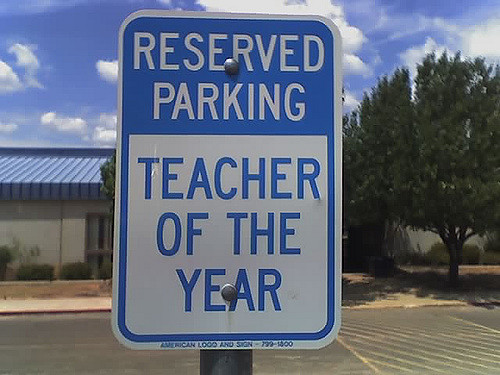In the first teacher training blog we looked at what to consider before embarking on teacher training. This part covers different options for training.
There are two main routes to becoming a teacher:
- Study based route with work placements - Post Graduate Certificate in Education (PGCE)
- Various salaried, work based routes
The first stage of training is known as Initial Teacher Training (ITT) and most lead to Qualified Teacher Status (QTS). Achieving QTS will offer you more employment and career development opportunities.
Which age group?
Obviously, before applying to train you need to decide whether you want to teach primary or secondary. Primary teachers teach a broad curriculum to the same class and as a result training focuses on how to meet individual pupil needs, as well as fulfil the pastoral role that is required of primary teachers. You can also train to be a subject specialist primary teacher.
Secondary school teachers teach their preferred subject, and as a result the training focuses on how to deliver the subject in an engaging way to meet the needs of different pupils. If you don’t have a degree in your preferred subject you can take a subject knowledge enhancement course in order to teach the subject.
Study based route
Post graduate courses, usually leading to a PGCE all offer QTS and are available across the country at universities. You will also complete a minimum of 24 weeks school experience in at least two different schools. Trainees are well supported by expert academic and practical advice from mentors and tutors. Bursaries and scholarships of up to £26,000 are available for in demand subjects. For all other courses, Tuition Fee and Maintenance Loans are available.
This route might suit you best if you’re somebody who likes to be taught and consider theory before being asked to put it into practice. You’ll gain experience of different schools, which isn’t usually the case when taking a work-based route. You will also get good support from university tutors, often very experienced teachers themselves, whereas support in work-based routes can vary dramatically between schools.
Work based route
There are 4 ways for graduates to train ‘on the job’ as a teacher.
- Premier Pathways – 2 year programme for graduates with 2.1s or above, work as support staff in the first year and qualify as a teacher in the second
- School Direct – typically for graduates with transferable experience, employed and recruited direct by schools
- Teach First – for graduates with 2.1s and above, based in schools in disadvantaged areas and aimed at future leaders, leads to a Postgraduate Diploma in Education and Leadership, worth double the credits of PGCE.
- Researchers in Schools for those with a PhD, wanting to teach secondary
For all these schemes you would be based in a school and delivering lessons very early on in your training. You will also complete qualifications but it’s important to ensure these lead to QTS. You should get some protected time for the study part of your training. These routes can be very intense in terms of workload and pressure, but if you’re somebody who thrives on being thrown in at the deep end, they could be a good choice for you. There’s also the obvious advantage of being paid a salary and many trainees remain in positions with the schools they’ve trained with. The level of support provided for trainees can vary, so it’s important to clarify this. One downside of these, is that you don’t get experience in different schools. There might be exceptions to this however, if you do your training with an academy chain.
Early Years and FE
Two other options are training in Early Years Teacher Status (EYTS) or Further Education (FE). Early years teacher’s work with 0-5s, facilitating learning through play and preparing children for primary school. Graduates can apply either for full or part time university led courses and EYTS is equivalent to QTS. FE teachers work in post-compulsory education and can teach a variety of subjects. You don’t necessarily need a teaching qualification but usually need to be willing to take one once employed and will need a degree in the subject you want to teach. However, most new graduates enter the profession through a PGCE in post-compulsory education.
Applications
If you’ve decided to embark on your teaching career and apply Prospects has some great advice on how to write a good application for any of the training routes. You can also book application advice sessions at the Careers Service and Get into Teaching sometimes run application events, as well as providing good advice for the application process.
Respond

